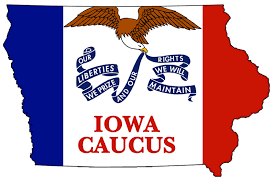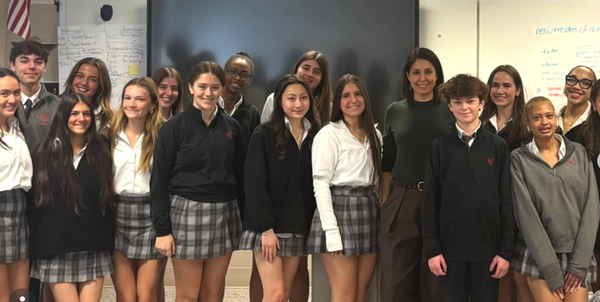Recap of the Iowa Republican Caucus

The State of Iowa It has been the first state in both Democratic and Republican primaries since the mid-1900s and continues to be the starting place of the presidential race. Monday, January 16th, was the well-anticipated Republican Iowa caucuses where former President Trump faced off against his rivals. Iowa sends 40 delegates out of the 2429 that will attend the convention. This mathematically makes Iowa a less important state to do well in; however, it sets the tone for the election. It’s important to note that days before the Caucus, former Governor Chris Christie suspended his bid for the White House.
A caucus functions differently from other US elections. At the end of the day, people go to one of the hundreds of precincts to vote. Everyone is handed a ballot and then goes into a room to hear speeches from campaign representatives. Following, they cast a vote, and they are then hand-counted by campaign representatives and sent to the state Republican Party to be certified.
Monday night was an election for second place between Nikki Haley and Ron DeSantis. Trump carried out a victory that was called within 30 minutes of the first votes being counted. Mr. Trump received 20 delegates, rounding up about half of Iowan’s support. This is most likely caused by the rural evangelical vote showing out for him.
Ron DeSantis defeated Haley by 1 delegate, receiving 9, and Haley by 8. Haley didn’t receive enough votes from urban counties like Polk and Scott counties. The independent and moderate vote was crucial to her victory. DeSantis was able to perform well overall, leading to his victory over Haley. Vivek Ramaswamy received three delegates, and following his loss, he suspended his bid and endorsed Trump to be the next president.
Entrance poll data shows surprising statistics, such as a growth in voters identifying as very conservative and more conservative than usual. These, not surprisingly, benefited DeSantis, who overwhelmingly supported Trump. Haley benefited from the moderate vote and was college-educated. Another interesting poll found that Haley received most of her votes from the anti-Trump vote. Overall, this is just the beginning of a long process. Although most can estimate that Trump will be the nominee, anything can happen. The next primary will be in New Hampshire and is expected to be a very close race.





